The colonial biometric legacy at heart of new EU asylum system
On Wednesday (10 April), the EU is set to vote on a new set of asylum and migration reforms. Among the many controversial changes proposed in the new migration pact, one went almost unnoticed — a seemingly innocent reform of the EU's asylum database, EURODAC. Although framed as purely technical adjustments, the reality is far more malicious. The changes to EURODAC will massively exacerbate violence against people on the move.
Filter resources
-
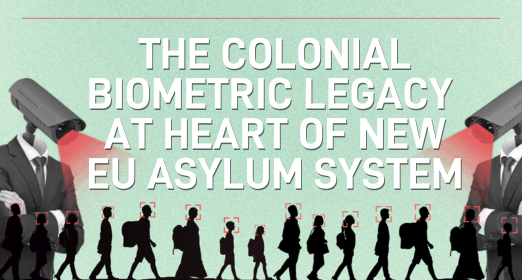
The colonial biometric legacy at heart of new EU asylum system
On Wednesday (10 April), the EU is set to vote on a new set of asylum and migration reforms. Among the many controversial changes proposed in the new migration pact, one went almost unnoticed — a seemingly innocent reform of the EU's asylum database, EURODAC. Although framed as purely technical adjustments, the reality is far more malicious. The changes to EURODAC will massively exacerbate violence against people on the move.
Read more
-
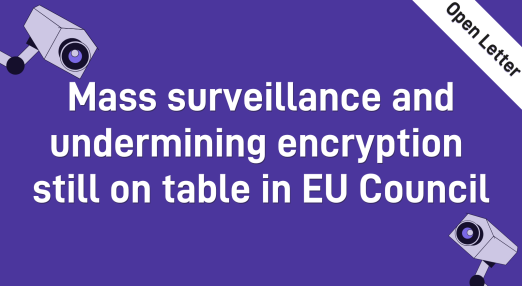
Open letter: Mass surveillance and undermining encryption still on table in EU Council
Today, 17 April, EDRi, in a coalition with 50 civil society organisations and 26 individual experts, call on Member State representatives not to agree to the proposed EU Council position on the Child Sexual Abuse (CSA) Regulation whilst so many critical issues remain.
Read more
-
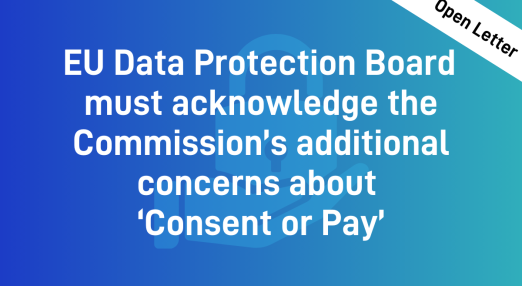
Open letter: EU Data Protection Board must acknowledge the Commission’s additional concerns about ‘Consent or Pay’
On 15 April, EDRi, noyb, Access Now and 20 consumer and digital rights organisations sent an open letter to the European Data Protection Board (EDPB) ahead of the EDPB’s decision on Meta’s “Pay or Okay” model.
Read more
-
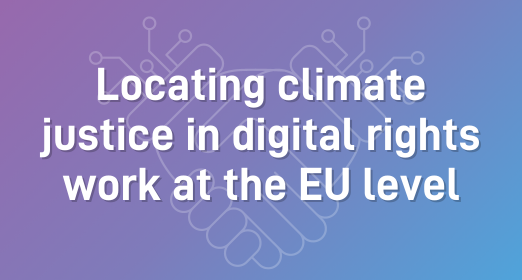
Locating climate justice in digital rights work at the EU level
A new study commissioned by EDRi acknowledges the complexities and environmental impacts of technological solutions, emphasising the need to bridge climate justice and digital rights. This is particularly relevant as the European Union views sustainability and digitalisation as twin and interconnected pillars.
Read more
-
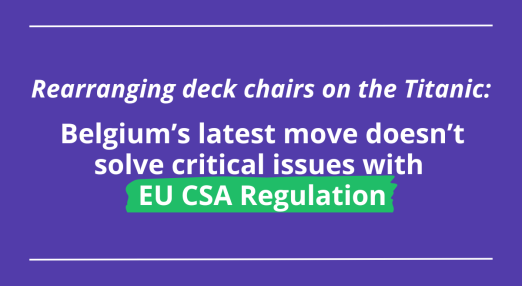
Rearranging deck chairs on the Titanic: Belgium’s latest move doesn’t solve critical issues with EU CSA Regulation
The EDRi network has long-urged European Union (EU) lawmakers to ensure that efforts to combat OCSEA (online child sexual exploitation and abuse) are lawful, effective and technically feasible. The goal to protect children online is vital. This can only be done if the proposed measures work and are compatible with human rights, including privacy and the presumption of innocence.
Read more
-

EDRi-gram, 3 April 2024
After our light-hearted April Fool’s edition, it’s time to get down to brass tacks. In this issue, we delve into the European Court of Justice’s landmark decision declaring the EU regulation on fingerprint IDs invalid—a significant victory. We’re also peeling back the layers of the Artificial Intelligence Act, offering you an in-depth look at the legislation’s intricacies and its implications for your digital rights. Furthermore, we shine a spotlight on the concerning trends in surveillance expansion and disinformation spread across Eastern partnership countries.
Read more
-

2023 Digital Rights Update: Eastern Partnership CSO Meter
Countries of the Eastern Partnership region continue digitalisation efforts and some implemented promising data protection legislation. However, the expansion of surveillance and spread of disinformation put digital rights under constant pressure in 2023.
Read more
-

Mandatory fingerprints on IDs will be up for re-negotiation
On 21 March 2024, the European Court of Justice ruled the European Union (EU) regulation that enacts fingerprint IDs to be invalid for formal reasons. The principle of mandatory fingerprint collection was declared to be compliant with fundamental rights. However, the court has required a new regulation to be adopted on a different legal basis, opening up opportunities to ultimately overturn the fingerprint obligation.
Read more
-
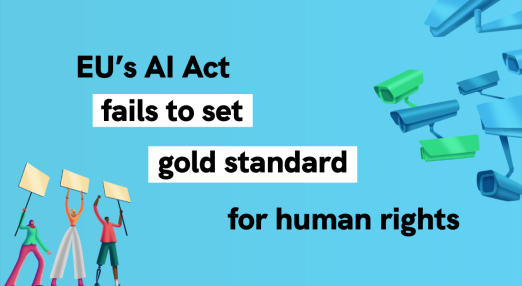
EU’s AI Act fails to set gold standard for human rights
A round-up of how the EU Artificial Intelligence (AI) Act fares against the collective demands of a broad civil society coalition that advocated for prioritising the protection of fundamental human rights in the law.
Read more
-
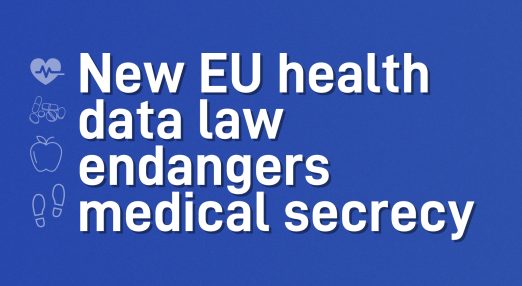
New EU health data law endangers medical secrecy
EU lawmakers have agreed on a compromise for the European Health Data Space (EHDS) which will expose everyone’s medical records to unnecessary security and privacy risks in the name of research and “innovation”.
Read more
-

Europol and biometric surveillance “won” the Czech Big Brother Awards
For the 19th year, the Big Brother Awards took place in the Czech Republic. There were four negative awards given as well as one positive award.
Read more
-
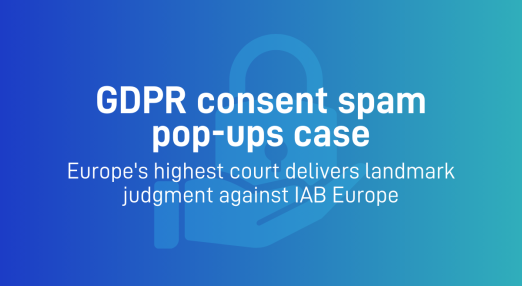
Europe’s highest court delivers landmark judgment against IAB Europe in GDPR consent spam pop-ups case
The Court of Justice of the European Union's landmark decision on March 7, 2023, against the auctioning of personal data for advertising purposes under the General Data Protection Regulation (GDPR) challenges the legality of invasive tracking and profiling in the context of online advertising. It marks a significant victory for privacy advocates and sets a precedent for the protection of personal data in the digital era.
Read more
